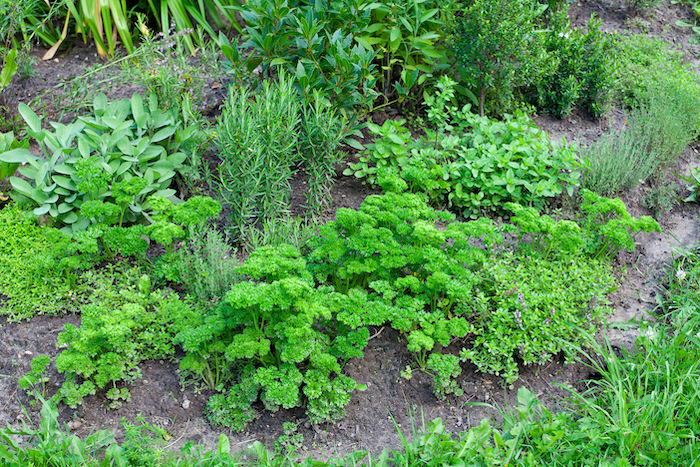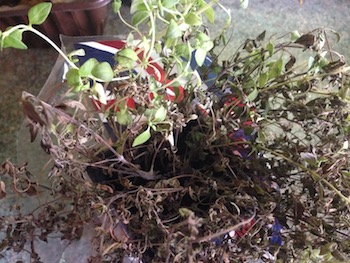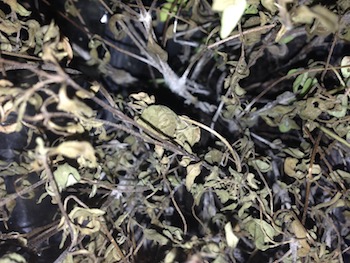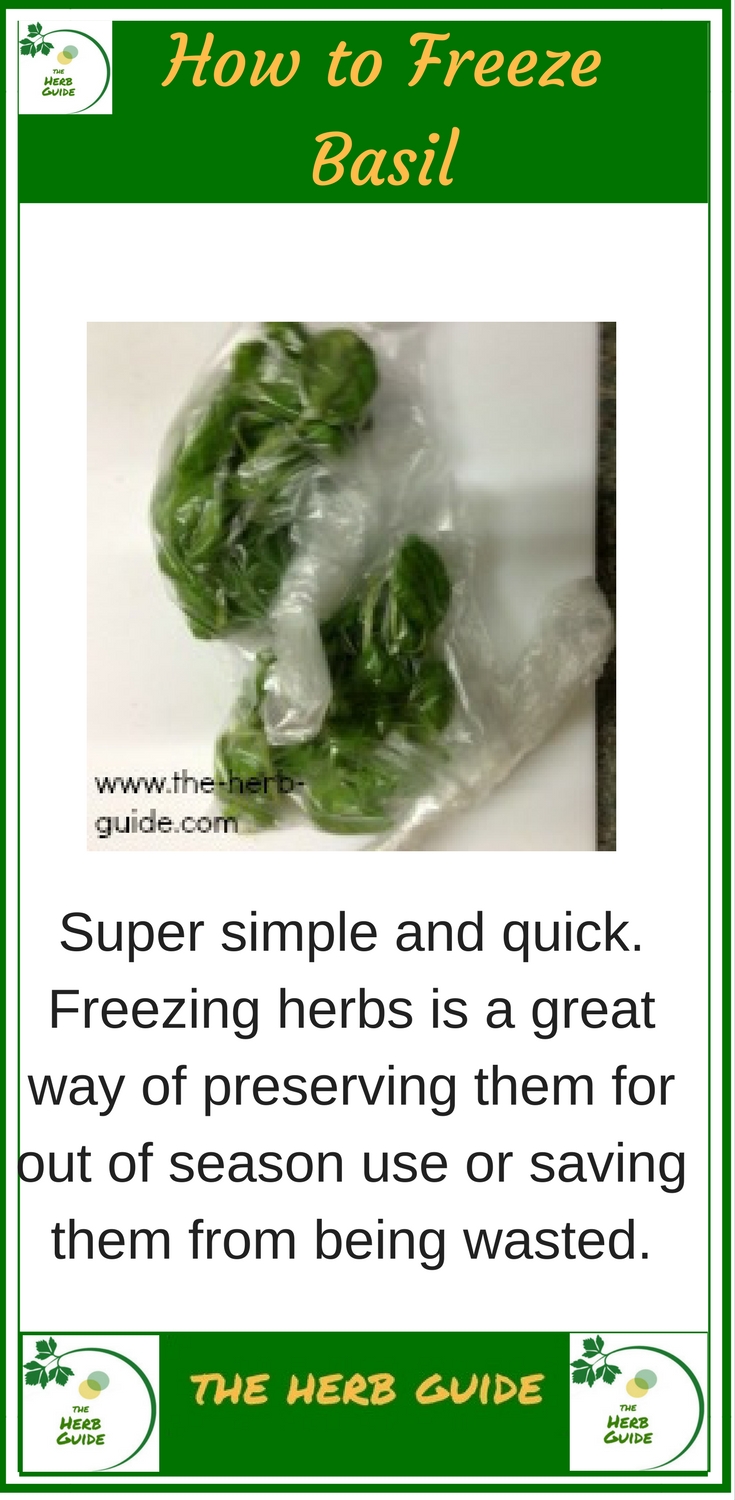- The Herb Guide Home
- Herb Guide News
- How to Not Waste Fresh Herbs
How to Not Waste Fresh Herbs
As an Amazon Associate I earn from qualifying purchases

How to not waste fresh herbs - whether you've bought them or grown them yourself, there's always the dilemma of what to do with your surplus.
Do you see a recipe that calls for a few sprigs and think twice about it, because you'll 'only waste the herbs' that are left from the bunch you buy, or think 'those herb plants I buy from the supermarket don't last'?
You're not alone - I've bought a bunch of herbs and they've gone slimy in the fridge or the supermarket plant has keeled over and there's nothing I can do to revive it. I get cross with myself because I really do hate waste and I'm upset that something has died.

You can try a sample lesson to help you decide if the Herbal Academy of New England is the right choice for you - follow the link below.
Is it worth the trouble for a small amount of herb?
Is it worth it?
Yes - if you mean is it worth:
- not wasting money no matter how little
- not letting something die that could be of use
- having something 'in stock' for later
- learning a skill
- being organised - thinking ahead
If you can get two or three uses out of something that you used to get one use out of and it's not 'costing' you much in the way of time or energy, then it's worth it.
You can preserve your herbs for later use by various methods:
- herb oil
- herb vinegar
- herb butter
- freezing in oil
- freezing in water
- freezing in bags
- drying in the microwave
- drying in the oven
- drying naturally
- drying in a dehydrator
That's just for starters :-)
Some people do claim success in immediately potting on their supermarket herbs into 'proper' compost.
Let me show you a photo of a pot of supermarket thyme I bought.
I used three sprigs in a figs with honey recipe and was going to use the rest of it later that week to make a cough syrup.
It just expired on me in a few days - started to go brown, then mould grew and that was it.
There were about six small sprigs which I cut off and put in a poly bag for my freezer box. It'll be plenty for my next fig bake or Homity Pie or similar, but certainly not enough to make a cough syrup!


Let's tackle 'why do supermarket herbs die'? First of all - it's not your fault!
Supermarkets sell growing herbs to extend the shelf life from about three days for cut herbs to around three weeks for growing herbs. That's it - three weeks is all they're expected to last.
They're in compost that isn't designed to feed them for long, they've been grown under lights in controlled temperatures - they're not designed for the 'real' world - they are truly delicate flowers - like a princess who can't sleep on a mattress with a pea.
If you understand about how plants adapt to an environment, then you'll get that you have to act quickly - I've covered it in depth at this page here (made a short video) as an explanation as to why the stuff you buy from supermarkets gives up the fight.
So - whether you buy cut or growing herbs from the supermarket - you're on a countdown to use them before they depart this mortal coil.
How to Not Waste Fresh Herbs
It's not a huge effort to freeze whole herbs in bags. I have a polythene box in the freezer that I put all my *labelled* bags of frozen herbs in. I keep a list on my noticeboard of what's there - but I do a quick search before I go shopping as well.
You can use this simple method to freeze most leafy herbs that you are going to use chopped. Cilantro, basil, parsley, thyme - not woody stemmed herbs like rosemary. You need to strip the leaves off the stems before you freeze them.
If you want to make a pesto, salsa verde or coulis, then freezing whole really is the best way to go.

It takes only a bit of forward planning to dry herbs in the oven - next time you have the oven on, use the residual heat OR if you have a gas oven with a pilot, then you can dry them any time.
Microwave drying herbs takes a minute or two.
How about storing them? I have little plastic pots that I use for my 'bits' of herbs. Keep them in a dark cupboard. These are 'fresh' dried herbs and I know they've got no pesticides on them.


Herb Tips
Storing herbs
Herbs will keep for many months if you store them properly:
Containers must be:
- airtight
- waterproof
Storage area should be:
- dark
- cool
- dry
Store them in your kitchen as that's the most likely place you'll be using them HOWEVER - don't put them in a cupboard over the kettle, stove or sink. Choose a floor cupboard if you have one free or keep them as far away from sources of heat, light and water as you can.
Next time you buy a bunch of fresh herbs, use what you need for the recipe and choose one of these methods of saving the rest for another
You can also make something with the herbs other than the recipe you originally bought them for:
- herb syrup
- herb honey
- herb ice cream
- herb salves
- herb tinctures
- add to breadcrumbs for stuffing
- herb cake
- herb bread
- pesto
- salsa verde
You'll need a general guideline as to what herb goes with what - i.e., chicken, beef, lamb etc and that information's here - it's not definitive, you can mix and match any way you like.
Herb Tips
If you have leftover herbs, try doing a search for 'x herb recipes' and you'll get thousands of ideas how to use them up before they die.
What to do with leftover herbs
When I say 'leftover' I mean 'surplus to the recipe you've bought them for'.
You can freeze everything to use at a later date of course, but you can also make things to use in recipes later. Half a bulb of garlic can be peeled and dropped into a pot of olive oil for instance. It'll look lovely and people will think you're a real domestic earth mother!
So:
Garlic - it will keep in the fridge for around two weeks or sometimes longer. But you can make oil, butter, chop and freeze (although there's a risk that the freezer might be overwhelmed by the smell) dehydrate and make powder or preserve whole cloves in oil.
Basil - make pesto, freeze in oil, preserve whole leaves in salt.
You get the idea - just have fun and try not to waste anything if you can help it.
Using Large Amounts of Herbs From Your Garden
If you've got loads of herbs growing in your garden, then you'll need to harvest them and store them for out of season use.
Herb Tips
Harvest Herbs - best practice
There are sometimes individual requirements and they'll be noted on the pages for each herb - here for Alphabetical List of Common Culinary Herbs but overall:
- Pick on a dry day
- Wait until the sun has dried the moisture off the leaves
- Pick before the sun gets too warm, as early as you can once they're dry
- Don't wash the herbs - you've waited for the sun to dry them, don't wet them again
- If they're dirty, wash the plant gently with water and leave for a further day to dry
- Unless you're wanting the flowers for drying purposes, harvest before they flower
- Leave some stems for flowering for the bees and pollinators
- Leave some stems on perennials so the plant can use the energy for reproducing for next year
Choose how you're going to store them and make sure you have the supplies you'll need to hand. Pick a day when you've got time to harvest and process. The fresher they are, the better the preserved herb will be.
How much time you'll need will depend on which method you're going to use to preserve them. Putting whole leaves into poly bags for the freezer will take a few minutes. Dehydrating in the oven means co-ordinating the harvest with a time you're going to have finished using the oven and then have a couple of hours to keep checking how they're getting on.
Dehydrating by machine will take several hours. Air drying will be several days, so don't start it two days before you go on vacation.
You get the idea :-)
I may receive a commission if you purchase something mentioned in this post. See more details here This will not affect the amount you pay.

